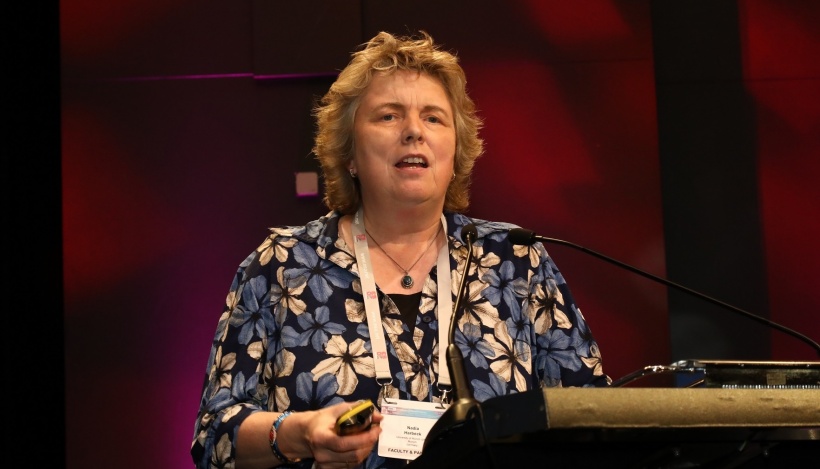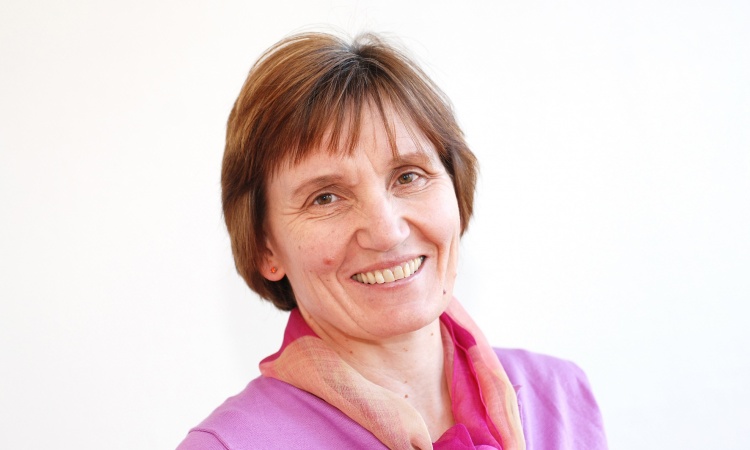
News • ABC4 conference
Delaying breast cancer progression is key to sustain life quality
Patients with advanced breast cancer have a better quality of life for longer if the progression of their disease can be delayed, according to new results presented at the Advanced Breast Cancer Fourth International Consensus Conference (ABC 4) in Lisbon.
This could be of great value to these patients for whom there are currently no curative therapies
Nadia Harbeck
Professor Nadia Harbeck, head of the Breast Cancer Centre at the University of Munich (Germany), told the meeting that analysis of results from the phase III clinical trial, PALOMA-2, showed that patients whose disease took longer to progress had a significantly greater delay in the time it took for their health-related quality of life to deteriorate compared to patients who had experienced progression earlier. This current analysis is based on the data set from February 2016.
“These results imply that delaying progression of the disease could help delay deterioration of health-related quality of life for patients with oestrogen receptor positive, HER2 negative advanced breast cancer,” she said. “This could be of great value to these patients for whom there are currently no curative therapies.”

The PALOMA-2 trial recruited patients with breast cancer that was advanced or metastatic (had started to spread to other parts of the body) and that was driven by the hormone oestrogen (oestrogen receptor [ER] positive) but not by the human epidermal growth factor receptor 2 (HER2 negative). The patients were randomised to receive either a combination of the anti-cancer drugs palbociclib and letrozole (444 patients) or placebo and letrozole (222 patients) as initial treatment, for their advanced disease. The trial showed that patients who received the combination treatment survived for a significantly longer time without their disease progressing compared with those who did not receive the combination – a median of 24.8 months compared to 14.5 months – although there were higher rates of neutropenia (low counts of white blood cells) with the combination treatment. Clinically relevant severe side effects were rare in both arms.
The patients were asked about their physical, social/family, emotional and functional well-being and additional breast cancer specific concerns using the Functional Assessment of Cancer Therapy – Breast (FACT-B) questionnaire prior to start of study treatment, on the first day of the second and third cycles, and then on the first day of every other cycle from the fifth cycle until their disease progressed or until the end of treatment.
A balance between quantity and quality of life is of extreme importance to patients
Fatima Cardoso
For this most recent analysis, Prof Harbeck and her colleagues looked at the FACT-B results and the outcomes of the patients in both arms of the trial. After a median follow-up time of 23 months, they found that regardless of which treatment the patients had received, if their disease had not progressed, the length of time their breast cancer-specific health-related quality of life was maintained was significantly longer than the time in patients who had experienced disease progression (a median of 29 months versus 19 months respectively). This was true not only when both arms of the trial were combined, where a strong and statistically significant increase of 47% in the time without a deterioration in their quality of life could be seen, but also in each treatment arm separately.
Prof Harbeck concluded: “Since delaying progression of the disease seems to have a positive impact on factors that patients consider to be important, such as their health-related quality of life, it might be critical to evaluate treatments on the basis not only of physician assessments of factors such as disease progression, but also of patient-reported outcomes such as health-related quality of life, instead of considering them as being mutually exclusive.”
Chair of the conference, Professor Fatima Cardoso, Director of the Breast Unit of the Champalimaud Clinical Centre in Lisbon, Portugal, said: “Advanced breast cancer is, for the moment, an incurable disease and, therefore, a balance between quantity and quality of life is of extreme importance to patients. The impact of any new treatment must be measured in both areas. The ESMO Magnitude of Clinical Benefit Scale, a tool developed to give an objective rate to all new treatments and currently used by a growing number of funders, classifies a therapy according to its efficacy in controlling the disease as well as its impact on the quality of life of patients. The use of patient-reported-outcomes is also crucial since it is much more representative of what is relevant for the patient, than an evaluation of side effects done by physicians or nurses.”
Source: ABC4
03.11.2017











